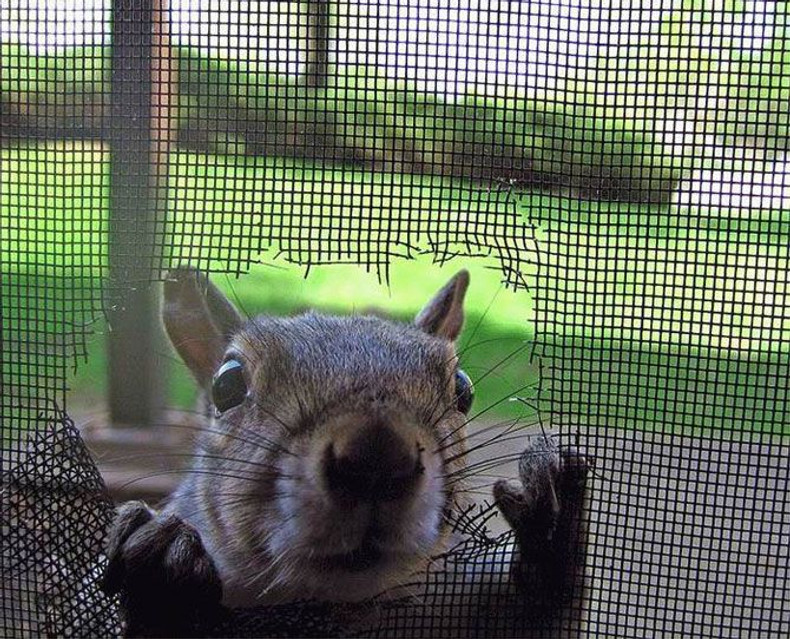Window screens serve as a barrier between the outdoors and your living space, providing ventilation while keeping pests at bay. However, certain animals can cause damage to window screens, compromising their effectiveness. In this article, we will explore some of the most common culprits and offer solutions for screen protection, including ordering replacement screens from Windowscreenpros.com.
Common Animals that Damage Window Screens:
- Pets: Pets, particularly cats and dogs, may scratch or claw at window screens out of curiosity or excitement. This can lead to tears and holes, affecting the screen's integrity.
- Birds: Birds, especially during mating seasons, might peck at window screens, attracted by their reflective surfaces. This behavior can result in punctures and damage.
- Squirrels and Rodents: Squirrels, mice, and other rodents may chew on window screens to gain access to your home or to create nests. Their sharp teeth can easily tear through the mesh.
- Insects: While not animals in the traditional sense, insects can contribute to screen damage. Bees, wasps, and other flying insects may collide with screens, causing tears or creating holes in their attempts to pass through.
- Wildlife: Larger animals such as raccoons, possums, or even neighborhood cats may inadvertently damage screens as they navigate around your property.
Preventing Damage and Ordering Replacement Screens:
To protect your window screens from these common culprits, consider the following preventive measures:
- Pet Training: Train your pets to avoid scratching or pawing at window screens. Providing alternative outlets for their energy, such as scratching posts or toys, can help redirect their behavior.
- Bird Deterrents: Install bird deterrents such as reflective tape or decals on the outside of your windows. These will make the surfaces less attractive to birds, reducing the likelihood of pecking.
- Rodent Control: Seal any gaps or entry points that rodents might use to access your home. Consider using mesh or wire coverings on vulnerable areas like attic vents.
- Insect Screens: To prevent damage caused by flying insects, install fine-mesh insect screens. These screens allow airflow while keeping out smaller pests.
- Wildlife Barriers: Implement barriers such as fences or netting to discourage larger animals from approaching windows. Secure garbage cans and eliminate potential food sources to make your property less appealing to wildlife.
For damaged screens that need replacement, Windowscreenpros.com offers a convenient solution. Here's how you can order replacement screens:
- Visit the Website: Go to windowscreenpros.com to explore their range of window screen options.
- Select Your Screens: Browse through the available screen options and choose the ones that match your specifications. Windowscreenpros.com offers a variety of sizes, materials, and types to suit different needs.
- Customization: If your windows require custom-sized screens, take advantage of the customization options available on the website. Enter your specific measurements to ensure a perfect fit.
- Order and Delivery: Once you've made your selections, follow the easy ordering process on the website. Your replacement screens will be shipped directly to your doorstep, providing a hassle-free solution to damaged window screens.
Conclusion:
Protecting your window screens from common animal damage is essential to maintain a comfortable and pest-free living environment. By implementing preventive measures and ordering replacement screens from Windowscreenpros.com, you can ensure the longevity and functionality of your window screens. Take proactive steps to safeguard your home and enjoy the benefits of fresh air without worrying about unwanted intruders damaging your screens.

